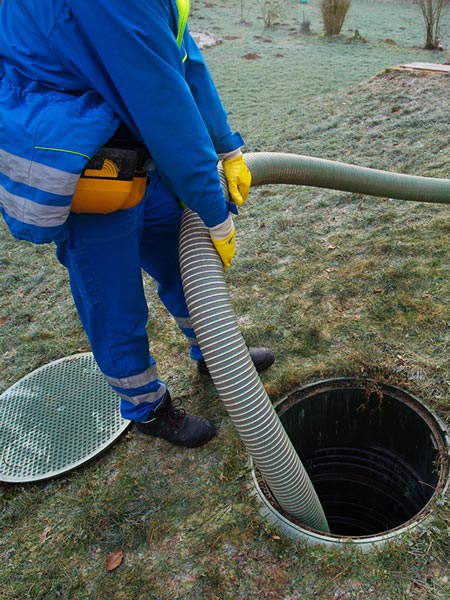Welcome to Kirley Septic Service
At Kirley Septic Service, we understand that maintaining a healthy septic system is crucial for your home or business. With years of experience in the industry, we are committed to providing top-notch septic services that keep your system running smoothly and efficiently. Our team of certified professionals is dedicated to delivering reliable, prompt, and affordable septic solutions that meet your unique needs.
24-Hour Emergency Services
That’s why we’re available 24/7 to provide prompt, reliable assistance when you need it most.
Just give us a call at 315-893-7110, so that we can help.
High Quality, Reliable Septic Services
- Septic Systems Pumped
- Septic Systems Installed & Repaired
- Sewer Pipe & Drain Cleaning
- Backhoe Service
- Dye Testing
- Camera Video Inspection
- Catch Basins
- Water & High Pressure Jetting
- Perc Tests
- Year Round Service
FAQs
The lifespan of a septic system depends on a few different things. The most important thing to keep a septic system healthy for a long time is proper maintenance during general use. While septic systems are built to last a long time, issues like clogged drain fields and pipe blockages can disrupt the system and cause damage. Make sure to keep up with the maintenance of your septic system—give us a call if you need help with it.
The lifespan of a septic system depends on a few different things. The most important thing to keep a septic system healthy for a long time is proper maintenance during general use. While septic systems are built to last a long time, issues like clogged drain fields and pipe blockages can disrupt the system and cause damage. Make sure to keep up with the maintenance of your septic system—give us a call if you need help with it.
You should try to keep the area within 10 feet of your drain field and open as possible. It’s important to make sure the soil can exchange air freely for it to do its job. Trees and large shrubbery should be kept at least 30 feet from your drain field as their root structures can damage the integrity of your drain field. Excess rainwater should be directed away from it as much as possible as well.
If you aren’t sure where your septic system is located, get a copy of your property’s septic system record (which is usually referred to as an “as-built”). This is a diagram that shows where your septic system components are located. You can get a copy of this document from your local health department or health district—inspectors can help locate your septic system if your tank has no risers.
If you don’t have any apparent issues but want to make sure everything is in good working order, a professional can perform a septic system evaluation. Some Health departments and districts can perform this service as well; usually this comes at a cost.
The main cause for septic system failure is with the drain field. When the drain field isn’t working properly, water and sludge can accrue on the surface—you won’t have trouble noticing the smell. This kind of failure often comes from septic tank overflow. Have a professional evaluate the situation as soon as possible if you see any signs of overflow or drain field backup.
The only things that should be flushed down the drain are human waste. Foods and other chemicals slow down decomposition rates in the septic tank and can lead to septic backup. While it won’t happen immediately, the general rule of thumb should be to avoid flushing things that bacteria can’t easily break down.
If you have risers installed checking the status of your septic tank fill levels are pretty simple and can be researched further online. If you do not have risers installed, the only real way to check the status of your tank before something goes wrong is to dig it up and check it out. We can do that for you, so give us a call!
How often you need to pump your septic tank depends on the size of the tank and the number of people using it. Commercial septic systems need more frequent maintenance because of the volume of use. Your septic tank should be inspected annually to check for needed repairs and pumped when necessary—usually every 3 to 5 years. If you are unsure of when you last had your septic tank pumped, give us a call!
- Toilets begin backing up
- Your yard starts to turn swampy
- Strong, unpleasant smell in your yard
- Drains begin clogging
